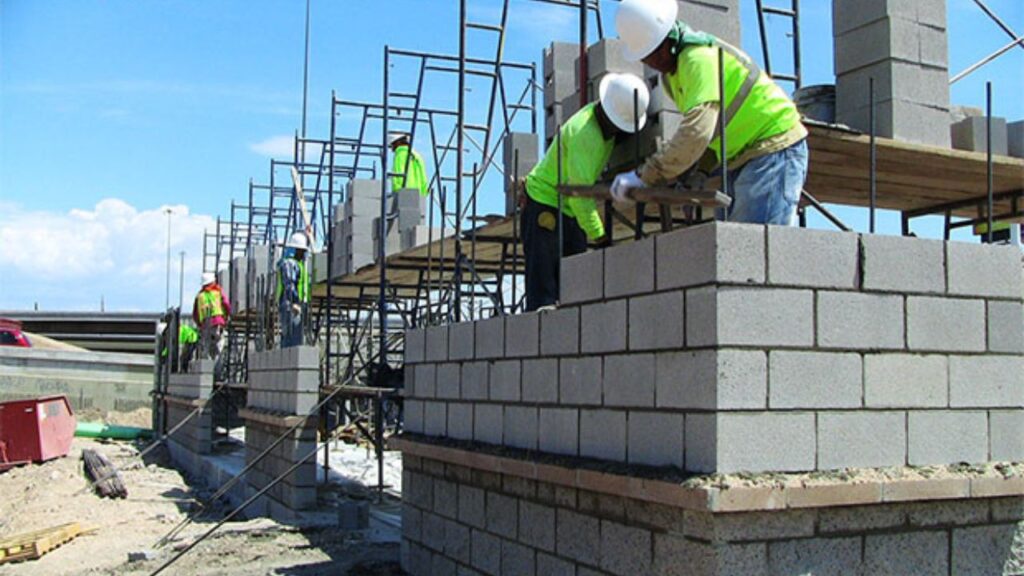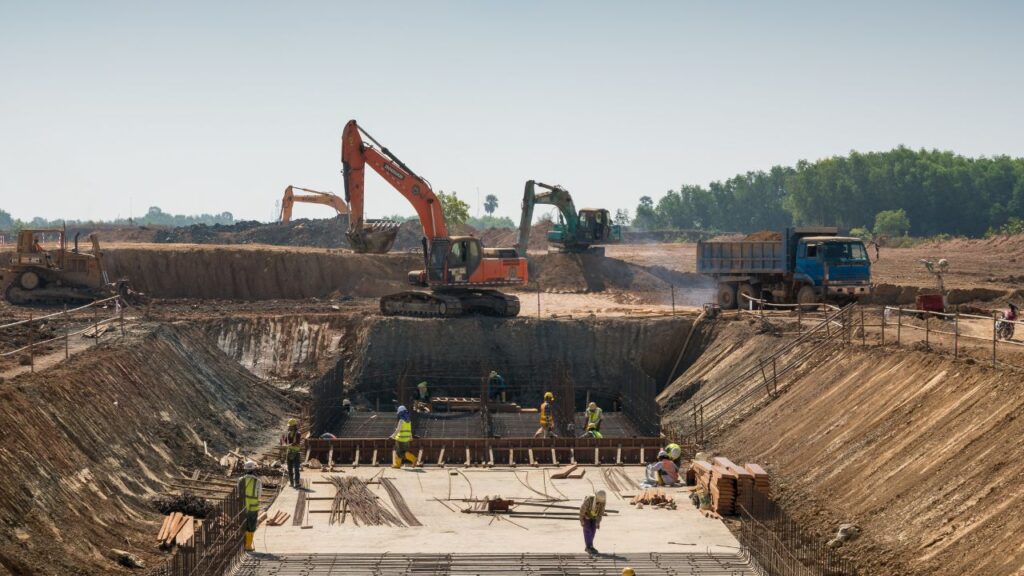- Homepage
- Blogs
General Contractor Cost Estimation Service
Leading provider of construction estimating.
Managing construction projects requires careful planning, and one of the most critical aspects of this process is cost estimation. General contractor cost estimation services help developers, contractors, and homeowners plan their projects financially, ensuring a seamless execution from start to finish. Whether you’re building a residential home or a commercial complex, cost estimation is the foundation for making informed decisions and staying within budget.
At Estimate Florida Consulting, we specialize in providing precise and detailed cost estimation services, helping clients across Florida achieve their construction goals with confidence.

What Are General Contractor Cost Estimation Services?
General contractor cost estimation services provide a professional evaluation of all costs associated with a construction project, helping ensure the financial success of the project. These services comprehensively evaluate the costs of materials, labor, equipment, permits, and any other related expenses, offering a clear and accurate estimate of the total cost. A well-prepared estimate serves as a roadmap that outlines every anticipated expense, allowing contractors, developers, and homeowners to effectively plan and allocate their budgets. This also ensures that financial resources are used efficiently, helping to avoid overspending or encountering unexpected costs during construction.
Key Components of Cost Estimation
Material Costs
Material costs are one of the most significant factors when estimating the cost of a construction project. Estimators must identify the types, quantities, and market prices for every material needed for the project, including everything from raw materials like steel and concrete to finishing materials like tiles, flooring, and paint. They also need to factor in potential fluctuations in material prices, delivery costs, and any special material requirements that may arise due to unique design or environmental considerations. For instance, using sustainable or imported materials may drive up costs. A detailed understanding of material needs helps ensure the estimate remains realistic and comprehensive, avoiding shortages or overstocking during the build.
Labor Costs
Labor is a significant cost component in construction projects, and accurate labor cost estimation is essential. This includes evaluating the number of workers required, the skill levels needed, and their corresponding hourly rates. Skilled trades such as electricians, plumbers, and carpenters tend to have higher hourly rates, and the number of hours required to complete the work must be accurately estimated. Contractors also need to account for the cost of overtime, specialized labor, and any potential union requirements, which may vary depending on the project location and scope. A precise labor cost estimate ensures that labor expenses are under control and prevents unexpected budget overruns related to workforce needs.
Equipment Expenses
Construction equipment plays a crucial role in any building project. Estimators need to assess whether the necessary machinery and tools will be purchased or rented, as this decision can significantly impact the budget. Common equipment required includes cranes, bulldozers, scaffolding, and specialized tools for tasks such as welding or drilling. Renting equipment is often more cost-effective for short-term projects, while purchasing might be a better investment for longer-term jobs. The type of project will influence which equipment is needed, and these costs must be carefully estimated to avoid delays caused by equipment shortages or excess expenditures on unused machinery. Additionally, operational costs, such as fuel and maintenance, must be factored in for a comprehensive estimate.
Permits and Licenses
Construction projects often require a variety of permits and licenses, which can vary depending on the project’s location and scope. These costs can range from basic building permits to more specialized environmental or zoning permits. Estimators need to ensure that they account for the cost of obtaining all necessary approvals to meet local, state, or federal regulations. Failing to secure the appropriate permits could delay the project, lead to fines, or even require expensive rework. Thus, it is crucial to include these permit and licensing fees in the overall cost estimate to avoid surprises during the construction phase.
Overhead Costs
Overhead costs are essential to consider when creating a cost estimate. These costs cover everything from office administration, utilities, and project management to insurance, transportation, and contingency funds for unexpected issues. While overhead costs do not directly contribute to the physical construction of the project, they are necessary to ensure that the construction project runs smoothly and stays on track. Estimators must account for the logistical support needed for the project, including site offices, equipment storage, and ongoing administrative support. By including overhead costs in the estimate, contractors can avoid misallocating resources and ensure they have sufficient funds to cover the operational costs of the project.
Why Are Cost Estimation Services Essential for Contractors?
Budget Control and Financial Transparency
Accurate cost estimation helps contractors control project costs and maintain financial transparency, both of which are vital to the success of a construction project. By providing clients with a clear, detailed estimate upfront, contractors can avoid misunderstandings about costs and prevent unexpected price increases down the road. This transparency helps in building trust with clients and ensures that everyone is aligned on the project’s financial goals. With accurate estimates, contractors can allocate resources efficiently and ensure that the project stays within the agreed budget, reducing the risk of financial surprises.
Resource Optimization
A comprehensive cost estimate allows contractors to optimize the use of materials, labor, and equipment. By planning the resource requirements based on the estimate, contractors can prevent shortages or overstocking, both of which can lead to delays or waste. Proper resource allocation is essential for maintaining project timelines and budgets, ensuring that the correct materials and equipment are available when needed, without incurring unnecessary costs. It also allows for better scheduling, which prevents downtime or idle workers, further improving cost-effectiveness.

Building Credibility with Clients
Accurate, detailed cost estimates play a significant role in establishing credibility and professionalism with clients. When clients see that a contractor has taken the time to carefully evaluate every aspect of the project, it fosters trust and confidence in the contractor’s ability to manage the project. A clear and transparent estimate also provides the client with peace of mind, knowing that they won’t encounter unexpected financial surprises as the project progresses. This leads to better communication, smoother project execution, and higher client satisfaction, which can result in repeat business or positive referrals.
How Does the Cost Estimation Process Work?
At Estimate Florida Consulting, we follow a systematic approach to cost estimation that ensures every detail of the project is captured, and the final estimate is as accurate as possible.
Reviewing Project Plans and Objectives
The first step in our cost estimation process involves reviewing the architectural and engineering plans to fully understand the scope of the project. This includes evaluating drawings, specifications, and the overall goals of the client to determine the specific requirements for materials, labor, and equipment. During this phase, we identify any special design considerations, such as environmentally sustainable features or unique architectural elements, which might affect costs. By thoroughly understanding the project objectives, we can create a more precise estimate that meets the client’s expectations.
Conducting a Detailed Quantity Takeoff
Next, we conduct a detailed quantity takeoff, where we list all materials, equipment, and labor required for the project. This step involves taking accurate measurements and quantities from the plans, ensuring that nothing is overlooked. A precise quantity takeoff helps in preventing shortages and waste, ensuring that the project progresses smoothly without delays due to missing materials. It also enables more accurate procurement and cost calculations, providing a solid foundation for the final cost estimate.
Analyzing Market Rates and Trends
Accurate cost estimation depends heavily on understanding current market rates. We research local and regional prices for materials, labor, and equipment to ensure that our estimates reflect up-to-date market conditions. Construction costs can fluctuate based on supply chain factors, regional labor availability, and seasonal variations, so we incorporate these factors to provide the most accurate estimate. In Florida, local trends—such as the price of concrete or labor availability during peak construction seasons—are carefully considered to avoid overestimations or underestimations.
Win More Projects With Us
Factoring Overheads and Profit Margins
Once material, labor, and equipment costs are estimated, we factor in overhead costs and profit margins. This includes accounting for project management, site utilities, and any other administrative costs. We also include contingency funds to address unforeseen expenses or challenges that may arise during the construction process. A reasonable profit margin is incorporated to ensure that the contractor’s business remains sustainable. By adding these elements, we provide a realistic and complete cost estimate that takes into account all potential expenditures.
Compiling the Final Estimate
The final step in the process is compiling all the information into a comprehensive cost estimate. This report includes a detailed breakdown of costs by category, allowing the client to see exactly where their money is being allocated. The final estimate is presented in an organized, transparent manner, ensuring that clients can easily understand the financial scope of their project. This report serves as a crucial tool for making informed decisions and managing expectations throughout the duration of the project.
Challenges in Cost Estimation
Price Fluctuations in Materials
The prices of construction materials can fluctuate rapidly due to market conditions, supply chain disruptions, and changes in demand. This can lead to uncertainty when estimating costs, especially for long-term projects. Estimators must keep up-to-date with market trends and factor in potential price increases to ensure their estimates remain accurate. Additionally, they may include a contingency to account for these fluctuations, ensuring the project remains financially viable if costs rise unexpectedly.
Labor Market Uncertainties
Labor shortages or wage increases can significantly impact a project’s cost estimate. In areas with high demand for skilled workers, contractors may need to pay higher wages to secure labor, which can drive up project costs. Additionally, shortages in certain trades, such as electricians or plumbers, may cause delays, increasing labor costs and extending the project timeline. Estimators need to be aware of local labor market conditions and adjust their estimates accordingly to avoid underestimating labor expenses.
Scope Creep and Design Changes
Scope creep and design changes during the construction phase can lead to unforeseen costs. When clients decide to change the design or add new elements to the project after work has begun, it can lead to additional materials, labor, and time. Estimators must anticipate the possibility of changes and include contingencies in the original estimate to mitigate these risks. Clear communication between all parties, including the client, architect, and contractor, is vital to minimize design changes and keep the project within budget.
Unforeseen Site Conditions
Unforeseen site conditions, such as poor soil quality, hidden utilities, or hazardous materials, can drastically alter project costs. These factors can lead to additional excavation, special equipment, or even rework, all of which can drive up costs. Estimators need to consider potential site issues when creating the initial estimate and include buffer amounts for addressing these problems if they arise. Having a comprehensive site survey and conducting proper due diligence before the project starts can help minimize these unforeseen costs.

Types of Projects Requiring Cost Estimation Services
Cost estimation services are essential for a wide variety of construction projects.
Residential Projects
Accurate cost estimation is crucial for residential projects, such as single-family homes, townhouses, and apartment buildings. Whether it’s a small home or a multi-family complex, estimating costs ensures that the project is financially feasible and completed on time.
Commercial Buildings
Commercial construction projects, including office buildings, retail spaces, and warehouses, require detailed cost estimates to ensure effective budget management. The complexity and scale of these projects make precise estimation critical for success.
Infrastructure Developments
Public infrastructure projects, such as highways, bridges, and water treatment plants, require specialized cost estimation services. These projects often involve large-scale operations, complex regulations, and significant logistical considerations that demand detailed financial planning.
Specialty Constructions
Specialty constructions, such as hospitals, schools, and hotels, have unique needs that require accurate and tailored cost estimates. These projects often involve specialized equipment, materials, and regulatory requirements, making expert cost estimation a necessity for ensuring successful execution.
Get Acquainted with Estimation
Maximize Profits: Budgeting Hacks for Big Construction Projects
Estimating Construction Costs in Bad Weather: What You Need to Know?
Benefits of Professional Cost Estimation Services
Enhanced Accuracy
Professional estimators use advanced tools and techniques to ensure that their cost estimates are as accurate as possible. This reduces the likelihood of budget overruns or delays, ensuring the project remains financially on track from start to finish.
Time Savings
Contractors can save valuable time by outsourcing the complex task of cost estimation to professionals. This allows them to focus on managing other aspects of the project, such as coordinating labor, procurement, and scheduling, while experts handle the budgeting process.
Reduced Risks
Professional estimators consider contingencies and account for potential unforeseen factors that might impact the project’s costs. By accurately predicting possible challenges, they help mitigate the risk of cost overruns and delays, ensuring that the project stays on track.
Competitive Edge
With accurate and detailed estimates, contractors can submit competitive bids, increasing their chances of winning projects. A precise estimate shows potential clients that the contractor has carefully evaluated the project and is capable of delivering it within budget and on time.
Tools and Techniques in Modern Cost Estimation
Modern technology has revolutionized cost estimation, making it more precise and efficient than ever before.
- Construction Estimating Software: Tools like PlanSwift and ProEst automate cost calculations, providing fast, accurate estimates.
- Building Information Modeling (BIM): BIM technology integrates design and cost estimation, offering 3D models that allow for better visualization and more accurate budgeting.
- Market Intelligence Platforms: Real-time updates on material and labor costs allow estimators to provide current and reliable estimates.
- Historical Data Analysis: By analyzing cost data from previous projects, estimators can refine their predictions and improve the accuracy of future estimates.
At Estimate Florida Consulting, we use these advanced tools to ensure that our estimates are not only accurate but also tailored to the unique needs of the Florida construction market.
Why Choose Estimate Florida Consulting?
When it comes to cost estimation, choosing the right partner is key. Here’s why Estimate Florida Consulting is your ideal choice:
- Florida-Specific Expertise: Our deep understanding of Florida’s unique construction market allows us to provide estimates that reflect local trends and regulations.
- Experienced Professionals: With years of experience, our team is committed to delivering precise and reliable estimates that you can trust.
- Comprehensive Services: From residential to commercial and infrastructure projects, we offer tailored cost estimates for all types of construction needs.
- Transparent Reporting: We provide clear, detailed estimates in a format that’s easy to understand, so you always know where your money is going.
Choose Estimate Florida Consulting for reliable, accurate, and transparent cost estimation services that ensure the success of your construction project.
Download Template For Construction Project Breakdown
- Materials list updated to the zip code
- Fast delivery
- Data base of general contractors and sub-contractors
- Local estimators

Conclusion
General contractor cost estimation services are the backbone of successful construction projects. By providing detailed insights into every expense, these services enable contractors to plan efficiently, manage resources effectively, and deliver projects on time and within budget. At Estimate Florida Consulting, we are committed to helping contractors and developers across Florida achieve their construction goals with confidence. Contact us today to learn more about our expert cost estimation services and how we can support your next project!
Question Answer
Frequently Asked Question
General contractor cost estimation services involve professional evaluation and calculation of all costs associated with a construction project. These services include detailed assessments of materials, labor, equipment, permits, and overheads, providing clients with an accurate estimate of the total project cost. This ensures better financial planning and resource allocation.
Cost estimation services are essential to ensure that construction projects stay within budget, avoid unexpected expenses, and allocate resources efficiently. They enhance financial transparency, optimize material and labor use, and help build trust with clients through detailed, upfront planning.
Cost estimation services benefit:
- General Contractors: For better project management and competitive bids.
- Homeowners: To plan residential construction costs effectively.
- Developers: To evaluate project feasibility and maximize returns.
- Subcontractors: To understand their financial responsibilities within a project.
Key components include:
- Material Costs: Evaluating the types, quantities, and current market rates for construction materials.
- Labor Costs: Accounting for workforce requirements, hourly rates, and skill levels.
- Equipment Expenses: Determining rental or purchase costs of machinery and operational costs.
- Permits and Licenses: Calculating fees for necessary approvals and regulatory compliance.
- Overhead Costs: Including administrative expenses, insurance, and contingency funds.
Labor costs are calculated based on the number of workers needed, their skill levels, and corresponding hourly rates. Estimators also consider overtime, specialized labor requirements, and local union wage rates to ensure accuracy.
Material pricing impacts estimates significantly due to potential fluctuations in market rates, delivery fees, and availability of specific materials. Using sustainable or imported materials may increase costs, making accurate pricing research essential.
Equipment costs are assessed by evaluating whether machinery should be rented or purchased based on the project’s duration and scale. Additional factors like fuel, maintenance, and storage are also considered.
Challenges include:
- Price Fluctuations: Rapid changes in material costs.
- Labor Market Uncertainties: Shortages or rising wages for skilled workers.
- Scope Creep: Unplanned design changes increasing costs.
- Unforeseen Site Conditions: Issues like poor soil or hidden utilities.
Cost estimation services are essential for:
- Residential Projects: Homes, townhouses, and apartment buildings.
- Commercial Buildings: Offices, retail spaces, and warehouses.
- Infrastructure Developments: Roads, bridges, and public facilities.
- Specialty Constructions: Hospitals, schools, and hotels.
At Estimate Florida Consulting, the process includes:
- Reviewing Project Plans: Understanding objectives and requirements.
- Detailed Quantity Takeoff: Listing all necessary materials, labor, and equipment.
- Analyzing Market Trends: Researching current rates for accurate predictions.
- Factoring Overheads: Including project management and contingencies.
- Compiling the Estimate: Presenting a transparent, detailed breakdown.
Comprehensive Trade-Specific Estimates
At Estimate Florida Consulting, we offer detailed cost estimates across all major trades, ensuring no part of your project is overlooked. From the foundation to the finishing touches, our trade-specific estimates provide you with a complete and accurate breakdown of costs for any type of construction project.

Testimonials
What Our Clients Say
We take pride in delivering accurate, timely, and reliable estimates that help contractors and builders win more projects. Our clients consistently praise our attention to detail, fast turnaround times, and the positive impact our estimates have on their businesses.
Estimate Florida Consulting has helped us win more bids with their fast and accurate estimates. We trust them for every project!

Steps to Follow
Our Simple Process to Get Your Estimate
01
Upload Plans
Submit your project plans, blueprints, or relevant documents through our online form or via email.
02
Receive Quotation
We’ll review your project details and send you a quote based on your scope and requirements.
03
Confirmation
Confirm the details and finalize any adjustments to ensure the estimate meets your project needs.
04
Get Estimate
Receive your detailed, trade-specific estimate within 1-2 business days, ready for your project execution.
















